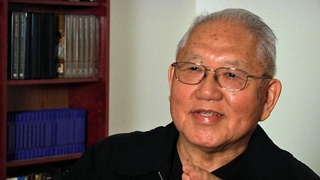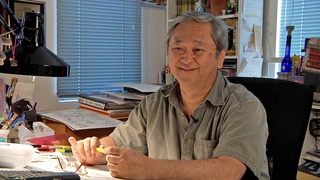Interviews
Testing assumptions of Japanese scholars
You know, I was kind of concerned about the Japanese scholars studying the Japanese American experience, and trying to caution them to be careful about the assumptions underlying their framework. And I think it’s very important that they do these studies because they can tell you a lot from their perspective.
But, I was saying to them, for us it’s a matter of perspective and a matter of getting our own perspective on our own identity. And I says, “If you were looking for answers to the question of your own identity, would you start out with, suppose, Ruth Benedict’s Chrysanthemum and the Sword?” I said, “That was done during the wartime with a very eminent anthropologist interviewing Japanese Americans about the Japanese identity.” And I says, “If you really wanted to get a line on your own identity, would you start out with a book like that?” I says, “It’s important for you to look at that book, but I’d certainly start out from your own perspective.” I says, “Your experiences in Japan and your scholarship training have various kinds of assumptions, so that if you’re studying the immigrant population of the Japanese all over the world, then test your own assumptions.”
Date: January 7, 2004
Location: California, US
Interviewer: Art Hansen
Contributed by: Watase Media Arts Center, Japanese American National Museum.
Explore More Videos

Hopes everyone pursues their dreams regardless of race or heritage
(b. 1981) Enka Singer

Considers Pittsburg his home, but always wanted to live in Japan
(b. 1981) Enka Singer


The first concert in the United States (Japanese)
(b. 1981) Enka Singer











